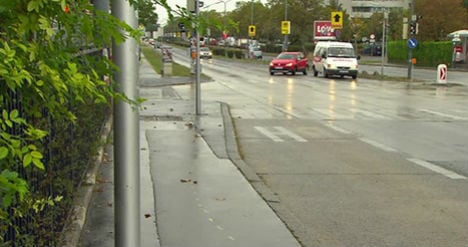The 22-year-old Serbian woman who lives in Vienna was seriously injured and is being treated in hospital. She had been dancing at the popular ‘Balkan Disco’ with friends and left at around 6:30am.
Police spokesman Christoph Pölzl said that a group of men accosted her and she began arguing with them, but one of the men wouldn’t leave her alone. A friend of hers tried to defuse the situation and suggested they go home.
The woman began walking towards a nearby bus stop with her friend, but one of the men she had been rowing with got into his car and followed her at high speed down the road. Eyewitnesses said that he accelerated, drove his Peugeot onto the pavement and knocked the woman over.
He then drove off at speed towards the Laxenburger Straße. Police are investigating and say the suspect could face charges of attempted murder.
The woman is being treated for a suspected fractured skull, a head injury, and a spinal injury. Doctors say she is in a stable condition but is not yet well enough to talk to the police.



 Please whitelist us to continue reading.
Please whitelist us to continue reading.